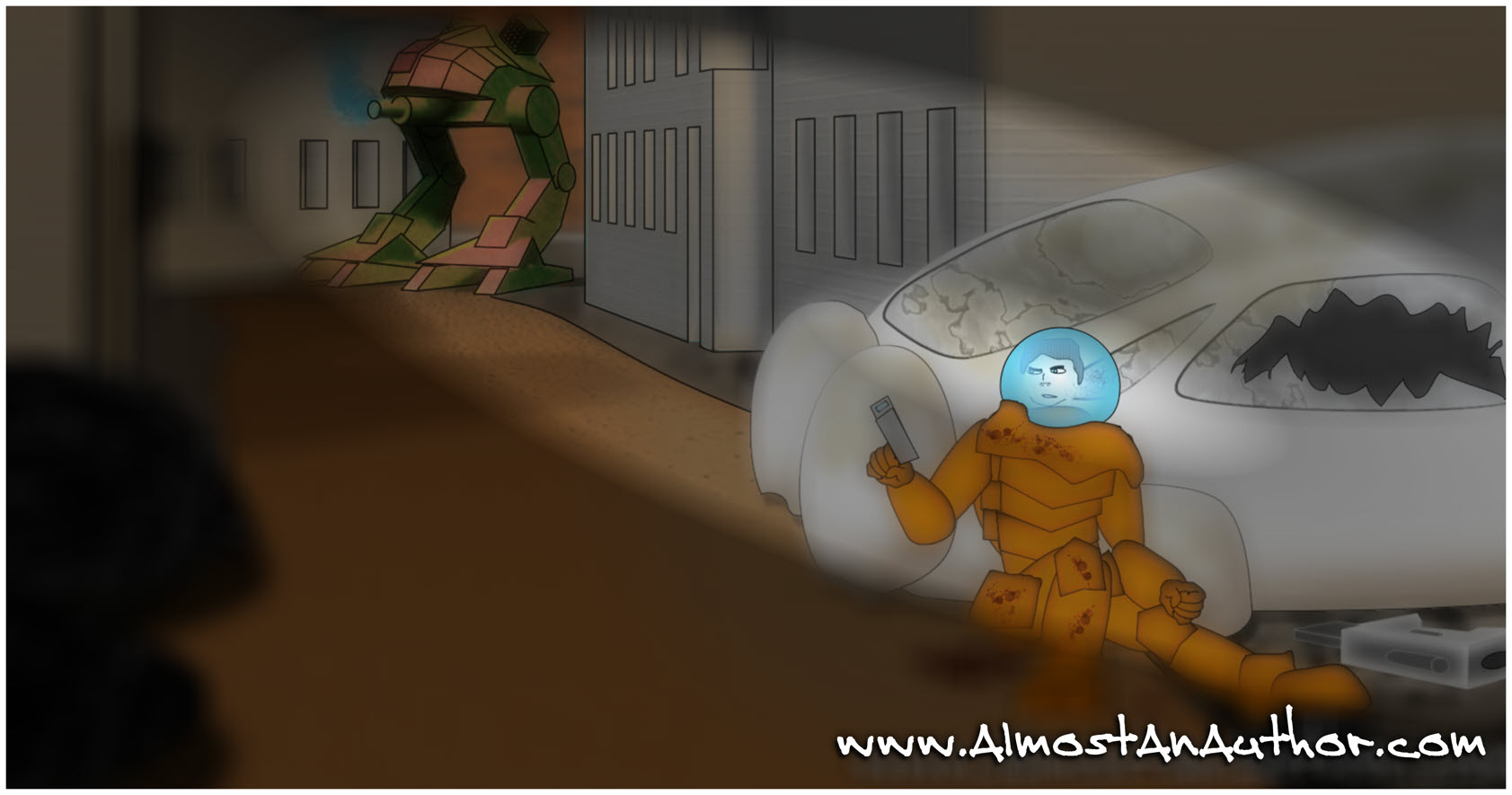
Pop! Goes the Cultural Landmarks!
I recently heard a discussion about pop culture “landmarks”– movies or television shows that have made a lasting impression…
May 6, 2018
I recently heard a discussion about pop culture “landmarks”– movies or television shows that have made a lasting impression…
May 6, 2018
Once upon a time, God created the heavens and earth. And God saw that it was good. Then He…
March 19, 2018
We’ve spoken before about how little details can help color your storyworld. Societal habits, mating customs, dinner choices, and…
August 10, 2017
Where do you get your inspiration? For me, it can something as simple as a “what if” question to…
July 16, 2017
Recently, a friend of mine asked me if western civilization was at the end of its life cycle. It’s…
May 11, 2017
Jim held a gray spheroid up to the light. “So Doc, you’re saying the sex of this alien was…
February 13, 2017
Save money. Learn theology. Become a better writer. Minister more effective. That’s my hope for you. In this second…
January 10, 2017
Save money. Learn theology. Become a better writer. Minister more effective. That’s my hope for you. In this second…
December 10, 2016
Need a bit of insight as you ready the pen or laptop today? Consider the following from one of…
November 23, 2016
by Sandra Merville Hart Mark Twain’s life was at a pivotal moment in the 1860s. He was out of…
November 21, 2016
The carbine was still jammed and Jim couldn’t do anything to fix it. He finally tossed it aside and…
November 9, 2016
The murmur of countless alien tongues subsided as the chairman of the interstellar council called for order. The delegates…
October 11, 2016
We discussed the first three suggestion to overcoming writing obstacles in an earlier blog. Run, walk, exercise – stir…
August 17, 2016
Are you a writer who hasn’t written a word? How many waves of inspiration flow thru your mind before…
May 31, 2016
The title of this post sounds ridiculous I know. I’m sure this article will get flagged by the A3…
April 21, 2016
My husband Don is starting his Appalachian Trail (AT) hike on March 13th. He’s had this passion on his…
March 21, 2016
When writing a speculative fiction novel, determine what the things of value are in your world. Water, food, shelter-building resources,…
February 7, 2016
I don’t know about you, but once in awhile my poetry springs from the oddest of inspirations. Not too…
November 7, 2015
Have you ever hit “send” for an email, or “publish” for a blog post, only to realize within a…
November 5, 2015
I recently read a headline that jumped off the page to me: “Can a GOP So Divided by Anger…
October 17, 2015
As a Christian writer I imagine you are like me and are driven with an overwhelming conviction and fire…
September 12, 2015
Have you ever struggled with blank page disorder? I have. Most writers face this issue at one time or another. Sometimes…
August 15, 2015
We’ve all heard the cliche, “Content is King.” The power of blogging depends on meaningful content. With the increasing numbers…
June 25, 2015